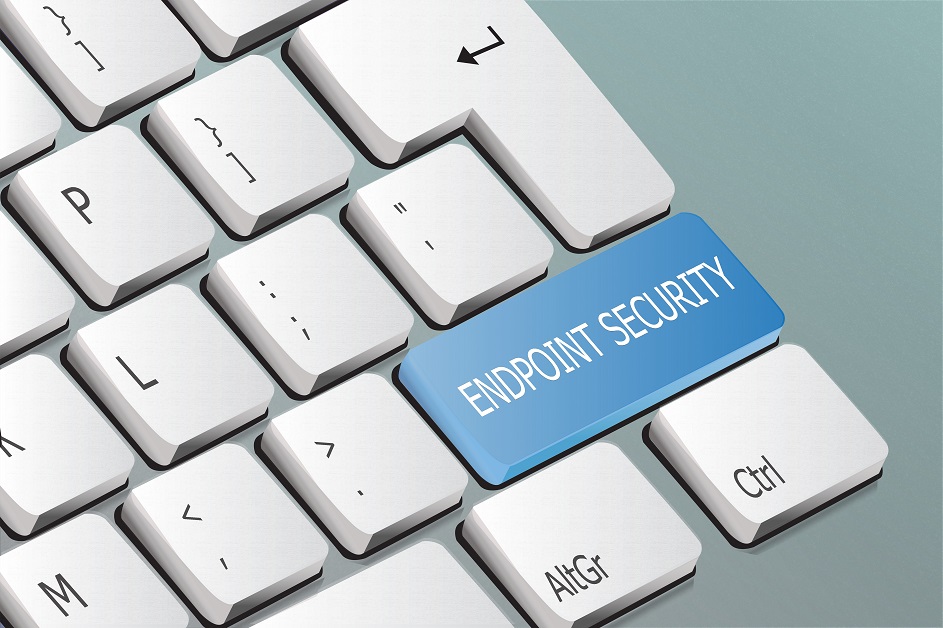Any new device that connects to the network of your business is a viable opportunity for hackers.
This could include things like laptops that employees bring to the office or tablets and mobile phones they use while working from home.
Threat actors actively seek unprotected devices to use them as the gateway to your systems – even when it comes to companies that have tools that guard their organisation.
If cybercriminals exploit this weakness in your system, they can use it to install malware, breach your network and leak company intelligence.
Therefore, protecting various devices that connect to your network (also known as endpoint devices) is an important part of the cybersecurity strategy of any small business.
What does endpoint security entail?
Comprehensive endpoint security involves multiple tools that can detect, prevent or mitigate cyber threats. They involve:
- Endpoint detection and response (EDR)
- VPN
- Data security
- Analysis of the cybersecurity and attacks surfaces
EDR is the solution that seeks malicious activity at the endpoints in order to mitigate it as soon as possible.
Once it notices any hacking attempts or malicious bots, it removes them to prevent data breaches or unauthorised use of credentials.
Every company has different devices it needs to protect and has to customise the rules based on which EDR is going to seek issues and respond to them.
The software is also updated to protect endpoint devices from new threats and criminal methods.
A Virtual Private Network or VPN creates a private digital tunnel for employees when they’re connecting to public or a company’s systems. The tool encrypts data and hides activity from hackers.
Data security refers to having a bird’s-eye view of all the information that is going in and out of your network. To keep control, it’s important to know where the sensitive data is at all times and who has access to it.
Analysis of the system can refer to regular detection of likely threats to generate the report of the high-rick threats in the system.
It can also refer to following up with the forensic report after the attack. The documentation highlights the flaws that have to be patched up for you to strengthen the security of your business.
When all of these tools are combined to protect your system, you have the security that is continually scanning for potential issues and mitigating the threats before they turn into incidents.
How does endpoint security compare to antivirus?
Most companies have the basics covered when it comes to cybersecurity, such as antivirus software and firewall installed on devices that are used for work.
Endpoint security goes a couple of steps further. Instead of installing anti-malware solutions to every single laptop that is used for remote work, it protects any device that workers use to complete their daily tasks.
Covering more ground, it gives you a comprehensive overview of your business’ cybersecurity from a single dashboard.
An antivirus is great at detecting malware and removing it from devices, but it doesn’t keep your network private or protect the system from new threats.
Anti-malware protection software can’t guard networks against zero-day attacks or new techniques that hackers use to exploit vulnerabilities and breach networks.
What should you protect your business from?
Top threats that can be prevented with the proper endpoint security include malware, weak passwords, and phishing.
Malware installed at endpoint devices of remote teams is a common technique that hackers use to breach systems.
They also don’t necessarily target your business specifically, but instead, seek any organisation that could be breached with malware. If you have any vulnerabilities, you’re likely to be a victim at some point.
In cybersecurity, phishing is known as a social engineering attack. For scams such as phishing, threat actors rely on human error to succeed.
They send out phishing emails and count on your teams to click on an infected link or download a malicious attachment that contains malware. Employees might not suspect anything, especially if the scammer impersonates a bank or CEOs of the company.
Weak passwords are also common flaws that allow unauthorised access for threat actors. This could mean that the credentials are reused for numerous accounts, not changed frequently, or aren’t unique.
If a hacker obtains or cracks a single password, they can use it to enter any accounts that are protected with the same reused credentials.
Why do small businesses need endpoint security?
Endpoint security protects the most vulnerable part of your network. What likely attacks such as malware injection and phishing have in common is that they’re aimed at your remote teams.
Threat actors target these employees in particular because they’re more likely to have weak passwords or connect to the network from unsafe devices. What’s more, they are more likely to fall for sophisticated phishing scams.
Common scams also target unsuspecting members of your team. However, besides IT and cybersecurity experts working in your company, employees have limited responsibility for protecting your network from potential breaches.
Layered cybersecurity includes multiple solutions that keep your system private. They’re continually on high alert to detect and mitigate any threat, prevent the attack in its early stages, and secure the data of your employees, customers, and the company itself.
Protecting both teams and your business
As more workers connect to your network and do so from home, it can be difficult to keep up with security and knowing whether all of their devices are properly protected.
Also, it has to be taken into consideration that not all employees are great with technology. They might connect to your network from home via devices that don’t have antivirus software or visit sites that contain malware.
If hackers use this vulnerability to get into a network of a business, they have the access to employees’ personal data as well as that of a business – something that can cause irrefutable damage to virtually any organisation.
The role of endpoint security is to secure both your employees and the critical assets of your company.
Read more
How to choose a cybersecurity solution for your small business




